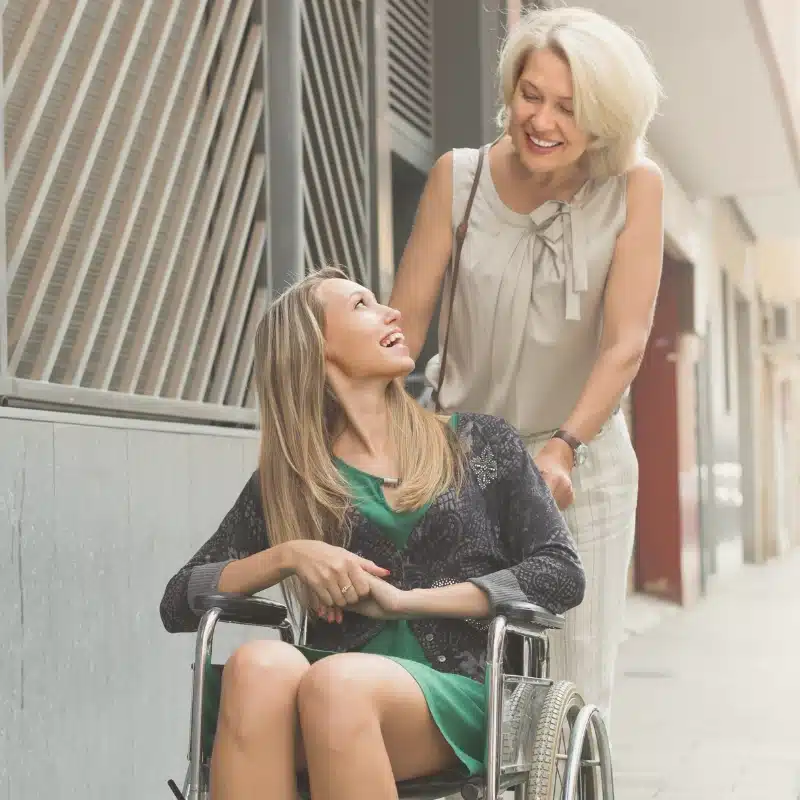Serving disabled workers in Douglasville, Columbus, and the surrounding areas of Georgia.
Schedule a ConsultationYOUR TRUSTED SOCIAL SECURITY DISABILITY LAWYER IN GEORGIA
Facing a disability or injury that stops you from earning can be overwhelming and distressing. The looming uncertainty of meeting daily needs, supporting your loved ones, and addressing increasing medical expenses can take a heavy toll on anyone. It's not just a matter of financial stress, but the emotional burden of navigating such a challenging period. Knowing your rights and understanding the options available can be a game-changer during these trying times.
At the Law Office of Ellene Welsh in Georgia, we specialize in assisting clients who, due to physical injuries or mental disabilities, are unable to work. Our team will attentively listen to your concerns, collect the necessary documents, and ensure that all paperwork is meticulously filed. We are committed to making the benefits process smooth and stress-free for you.
Call us at 770-489-3456 to schedule a free initial consultation. Let us help you navigate the path ahead.

CONTACT US
Denied Benefits? Contact Social Security Lawyer Ellene Welsh Today
Not everyone needs a social security lawyer. It is best to apply for social security benefits on your own first and contact a lawyer if any issues arise in the process. Our law office specializes in helping those denied social security benefits in Georgia.
You may be eligible for disability compensation if you are disabled and unable to fulfill your job duties. However, the SSA frequently denies claimants for various reasons: A person fails to fill out the necessary documents, misses a deadline, suspicion of fraud, or other factors.
Because of these variables, you’ll need a lawyer to make sure you obtain the benefits you need to pay your expenses and care for your family while you’re unemployed. A qualified attorney like Ellene Welsh in GA, has years of expertise and is familiar with the filing procedure to obtain financial and healthcare benefits for you and your family.
Explore the Requirements for Social Security Benefits
If you have suffered a temporary or permanent injury that prevents you from working for at least one year, you may be eligible for Social Security Disability (SSD) benefits. This program requires you to have a certain amount of previous work history, in addition to contributions to the plan. However, Supplemental Security Income (SSI) benefits are financial assistance that does not require a work history and were created to help people with long-term disabilities that render them unable to work.
To be eligible for SSDI benefits, you must show the Social Security Administration that you have worked in the past but currently have a medical condition that prevents you from working. More specifically, you must demonstrate that:
A doctor has diagnosed your medical condition
Your doctor expects that your condition will last at least a year or that it will be fatal
You are unable to perform your duties due to your medical condition
You can also not perform other sorts of employment for which you are qualified due to your health
You have enough “work credits” based on your previous job history to be eligible for SSDI payments
In the last ten years, you’ve accrued at least 20 work credits
You must demonstrate a low income if your previous job history did not give you enough work credits to qualify for SSDI payments
Factors that may automatically qualify you for disability benefits
Disability benefits may be automatically awarded to you if you meet any of these three criteria:
Medical conditions that may qualify you for automatic approval
The Social Security Administration has listings that specify a variety of mental and physical disabilities that may qualify an applicant for SSD payments. However, if you don’t meet a listing, it doesn’t guarantee that you will be denied, as this list may not include all disabilities that qualify. That is why it is critical to get in touch with us at The Law Office of Ellene Welsh to look at other factors in your case and determine whether we can help you obtain the benefits you deserve.
Specific disabilities may qualify you for social security benefits. Some examples are:

Respiratory diseases
Neurological disorders
Kidney disease
Autoimmune diseases
Musculoskeletal conditions
Immune system disorders
Issues with speech and senses (hearing, sight, etc.)
Cardiovascular diseases
Mental illness such as depression, anxiety, autism, and more
If your initial SSD or SSI claim is denied, we can help. Attorney Ellene Welsh will:

Hear From Our Clients
Common Questions
SSI claim denial can occur for several reasons. First, the individual processing your application may be unaware of your disability. There might be a mistake in your documents. Alternatively, the government may request further documents.
Other reasons for a social security benefit denial may include:
- You did not submit your medical records
- You make more than a specific amount of money
- You missed an appointment with your SSA-approved doctor
You may have to wait months while one setback after another derails what appears to be a straightforward procedure. In the meantime, you’re not getting any benefits. However, this isn’t the end of the road – our Social Security disability lawyers can assist you.
We know what it takes to create a successful application based on our previous experience. Our SSDI lawyers will gather the necessary papers for your case and present evidence to show that your condition qualifies you for benefits. We will attend hearings and handle appeals if your claim is refused.
There will never be any upfront charges when you hire our firm. We are only compensated if your Social Security Disability claim is approved.
As a result, efficiency and quick responses are essential parts of our day-to-day operations. Our main goal is to expedite your claim and get the best possible outcome for you.
We’re here to assist you in getting started right now. You may reach us by dialing 770-489-3456. You may also use the contact form below to send us an email.
We know what it takes to create a successful application based on our previous experience. Our SSDI lawyers will gather the necessary papers for your case and present evidence to show that your condition qualifies you for benefits. We will attend hearings and handle appeals if your claim is refused.
SSDI aids families in managing the financial burden that occurs after an injury or disability, and there are several types of benefits available:
Social Security Disability Insurance (SSDI or SSD)
Social Security Disability Insurance (SSDI) or Supplemental Security Income (SSI): SSDI, the most prevalent form, requires that you have been employed for at least five years out of the preceding ten. Your dependents may also qualify for SSDI compensation if you are eligible.
Supplemental Security Income (SSI)
You may qualify for SSI if you are a U.S. citizen who is disabled, blind, or over age 65 and has a low income.
Disabled Adult Child (DAC)
DAC benefits are for disabled children between 18 – 22 whose guardians collect Social Security benefits or are deceased.
Disabled Widow/Widower (DWB)
To qualify for DWB, have a disability, be age 50+, and have lost your spouse of 10+ years within the past seven years.
Veterans’ Disability Benefits
These benefits are only available to military veterans who have suffered an accident, injury, or health condition that has led to a service-related disability.
Both SSDI and SSI programs give financial support to those unable to work due to their disability, but there are a few differences. Which one you should apply for will depend on the following factors.
Social Security Disability Income (SSDI):
Unlike SSI, SSDI is dependent on your previous work experience and how many work credits you have accrued. Therefore, your previous earnings at work determine your benefit amount.
Supplemental Security Income (SSI):
SSI is awarded to injured and disabled workers, as well as children born with a disability. Because SSI is awarded to children, your past working experience is not considered while evaluating your eligibility. So, unlike SSDI, the amount awarded is determined by a federal maximum and not your past work experience.
There are different complex requirements for each type of benefit. If you’ve already applied and been denied, it is best to contact a GA Social Security Disability Attorney like The Law Office of Ellene Welsh to discuss all the details further. Give our office a call today for a free consultation.
If you think your claim was wrongfully refused or underpaid, you still have choices. After you file for an initial reconsideration, you have four more opportunities to appeal your Social Security Disability claim. Your attorney can file an appeal for a denied claim by following the steps below:
1. Reconsideration
2. Hearing Before an Administrative Law Judge
3. Review by the Appeals Council
4. Federal Court Review
If you have applied and been denied, call a Social Security Disability Attorney as soon as possible. It’s essential to act quickly as it can take months or even years for your case to be heard before an Administrative Law Judge. So call your trusted GA SSDI attorneys at The Law Office of Ellene Welsh today at 770-489-3456 for your free consultation.

Schedule a Consultation
With 35 years of legal experience, Attorney Ellene Welsh specializes in assisting individuals in the Douglasville, Columbus, and West Georgia areas to secure Work Comp, Social Security Disability, and Supplemental Security Income (SSI) benefits, leveraging her in-depth knowledge of the systems and collaborating with admin officials to secure her clients the financial support they deserve.
Get Started